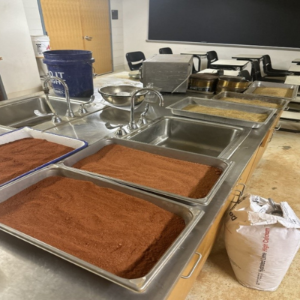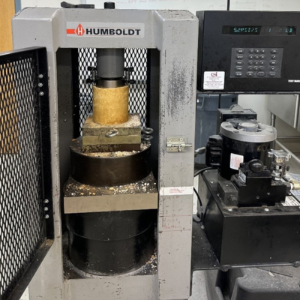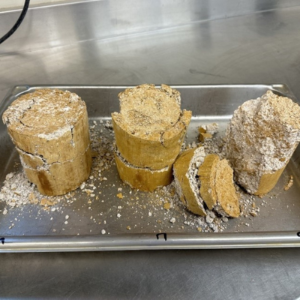Soil Treatment: Finances of Engineering
Woongchan Oh ’25 from Civil and Environmental Engineering (CEE) conducted a financial analysis on treating soils with hydraulic lime for a theoretical construction project in Mebane, North Carolina.
The objective was to determine the optimum lime quantity required to stabilize the soil and evaluate the most cost-effective construction method. The project involved grading a 90,000 square foot building pad, requiring 5 feet of cut on the north side and 5 feet of fill on the south side. The soil was found to be 4% over optimum moisture content, and the project timeline was critical, with a penalty of $10,000 per day for delays beyond 15 days.
Two stabilization methods were evaluated: hiring a specialty contractor, who could treat two six-inch lifts per day at varying costs depending on lime percentages, versus the contractor performing the stabilization using his own equipment, treating one six-inch lift per day. The costs included equipment rentals and lime, priced at $1,500 per ton.




L to R: Samples being prepared for mixing lime, compacted sample in compressive strength test device, samples after testing, Cadet Oh.
Oh meticulously determined the soil's physical characteristics, prepared compacted samples with different lime percentages, and tested them for unconfined compressive strength after a 5-day curing period. This testing helped identify the minimum effective lime percentage to reduce moisture content and enhance soil strength. Through diligent research, Oh successfully identified the most cost-effective solution for soil stabilization which was hiring a specialty contractor, demonstrating both analytical and practical skills crucial for engineering projects.
* All the testing was done in CEE’s soil and materials lab.
Mr. Stephen L. Neas II '77
Adjunct Instructor, Civil & Environmental Engineering
A licensed Professional Engineer in Virginia, North Carolina, and formerly South Carolina, Neas is an active member of professional organizations, including the American Society of Civil Engineers and the Geotechnical Business Association.
.svg)
.png)